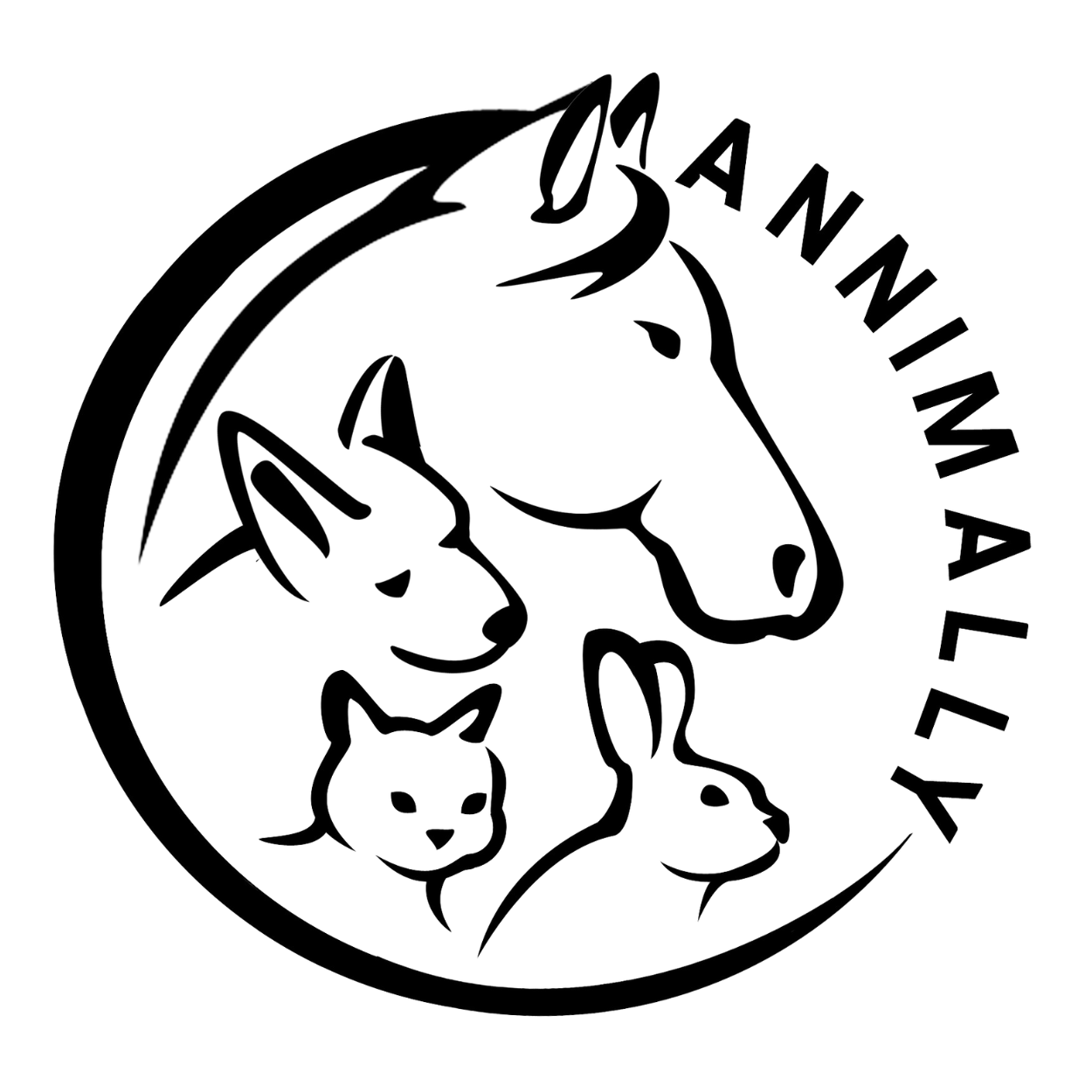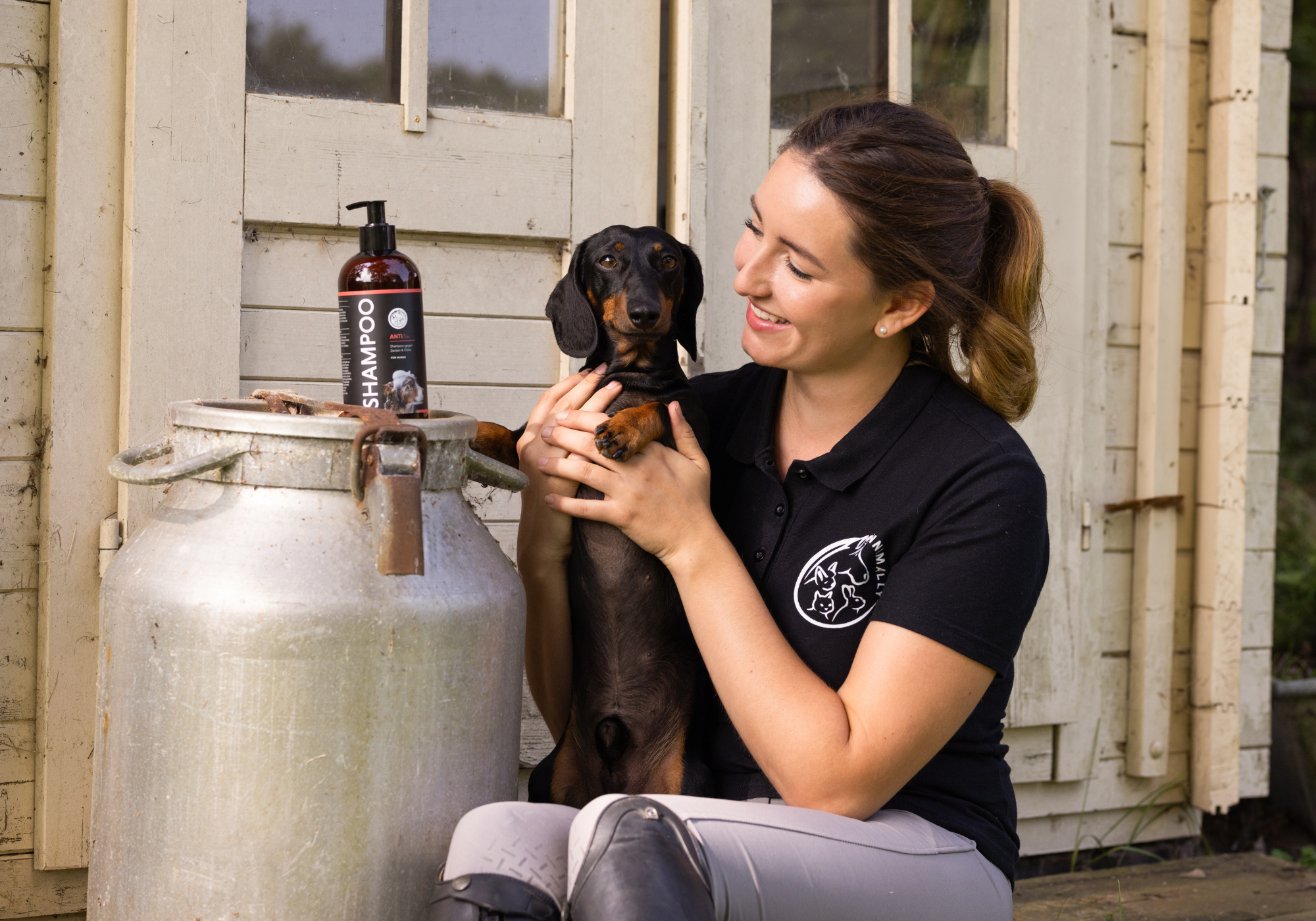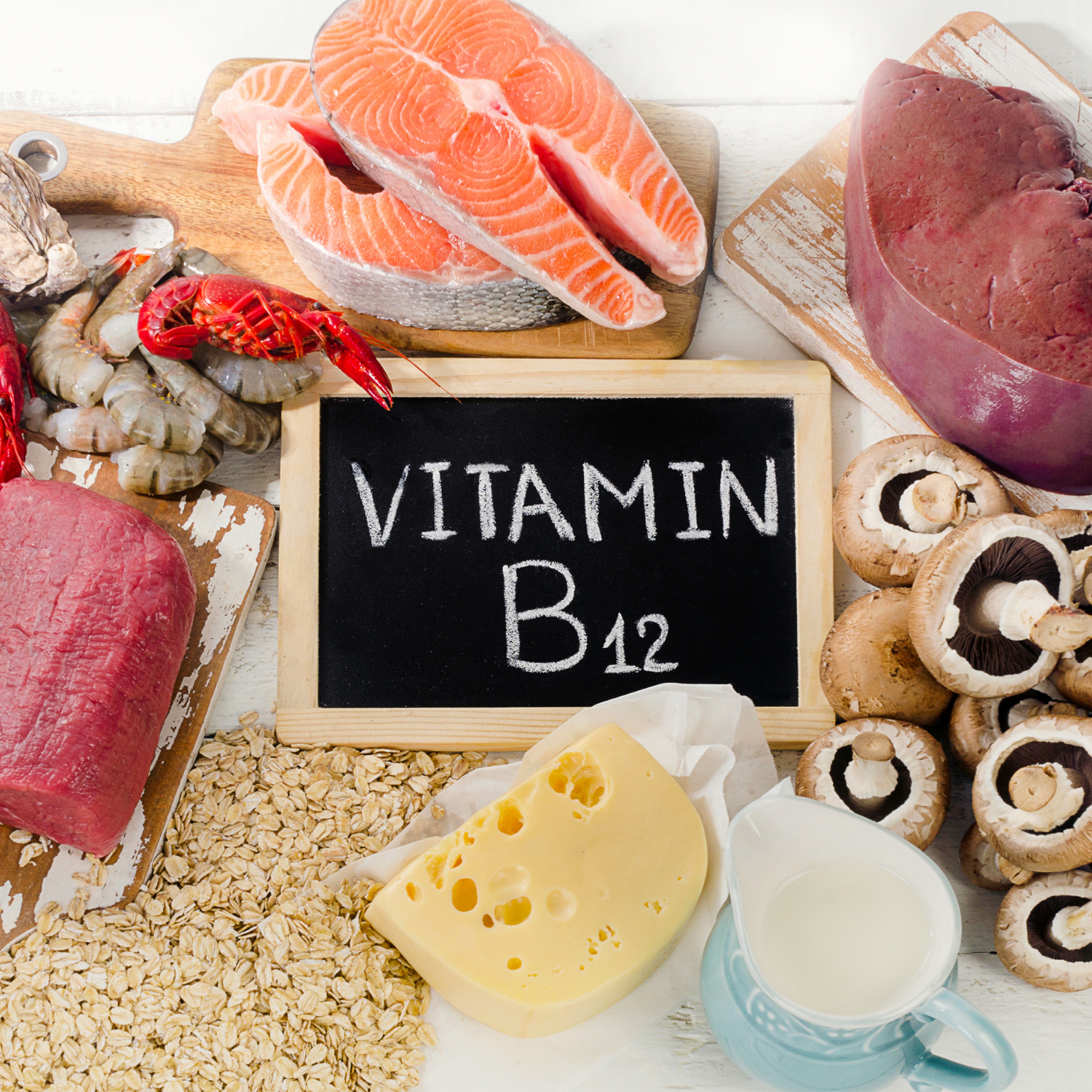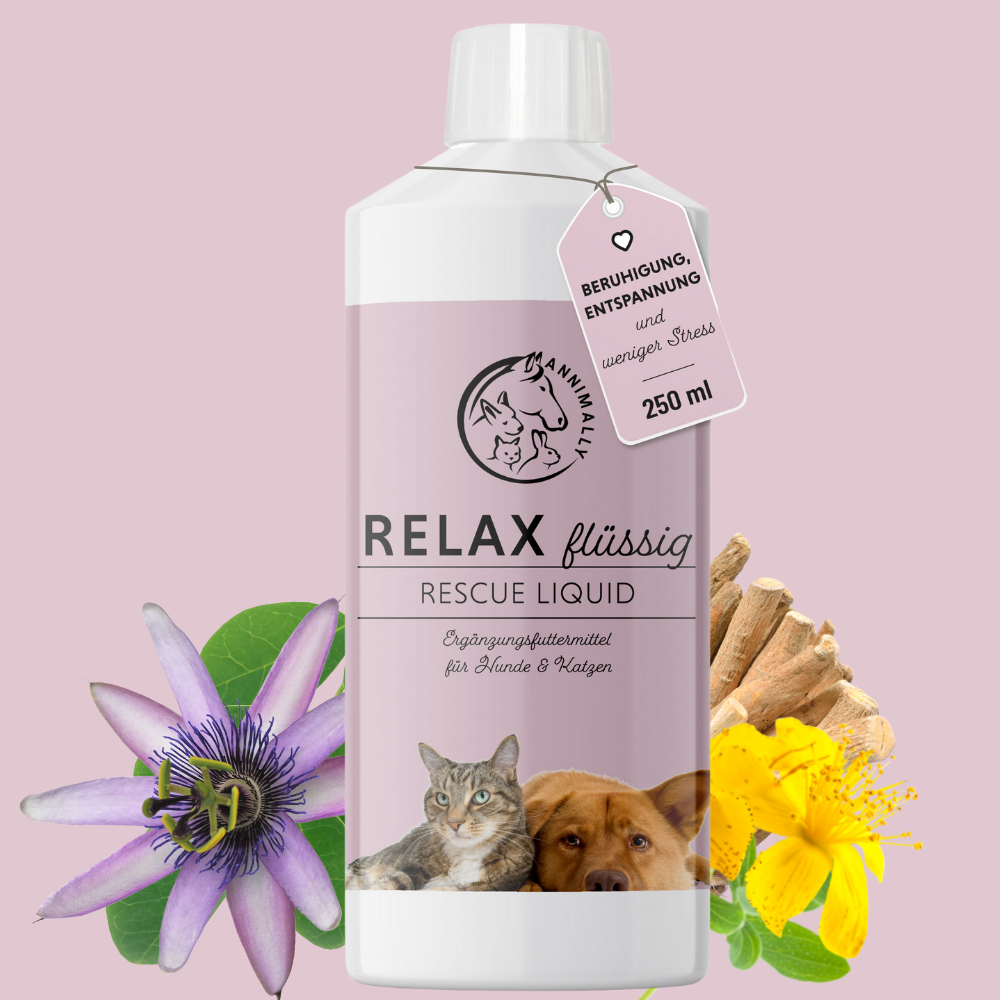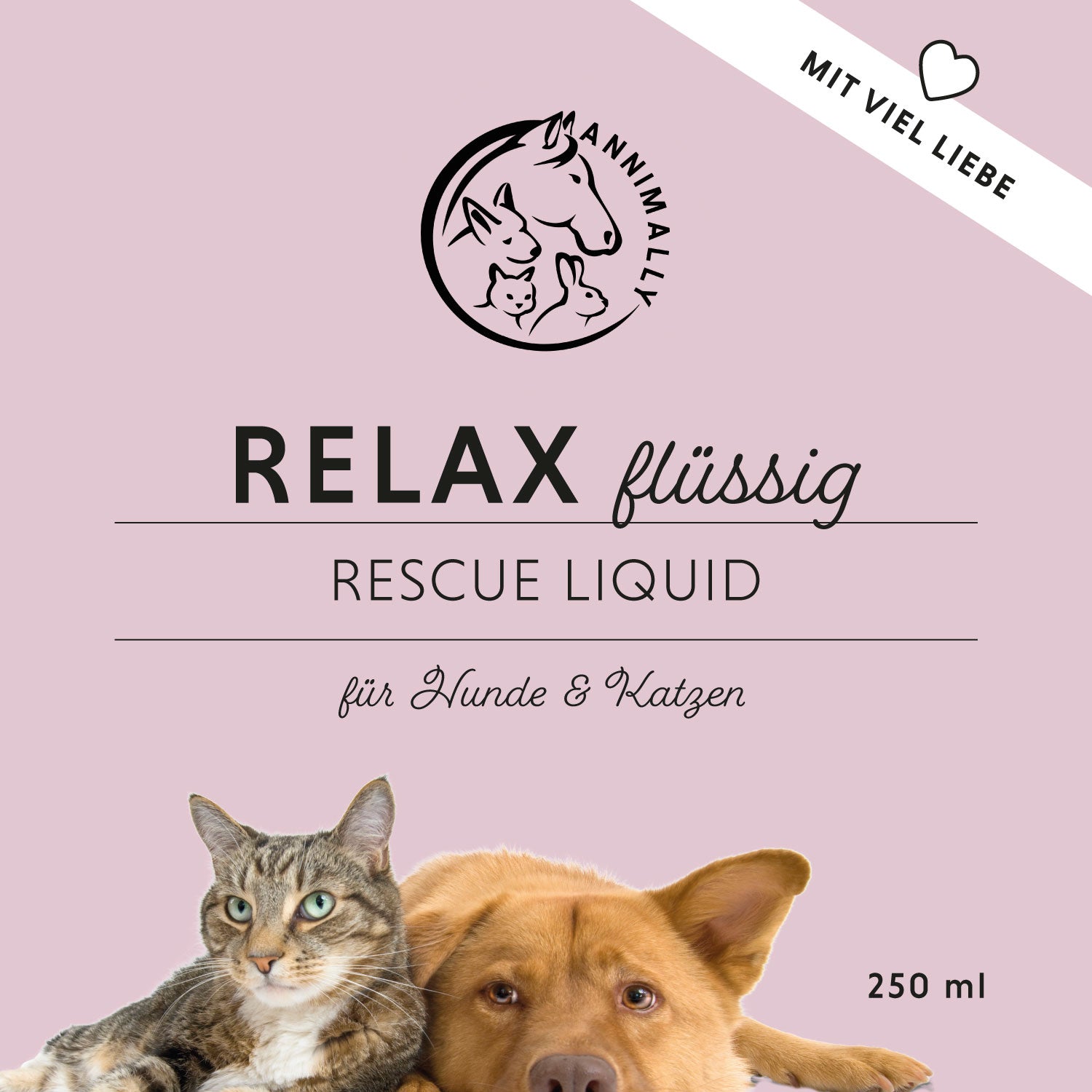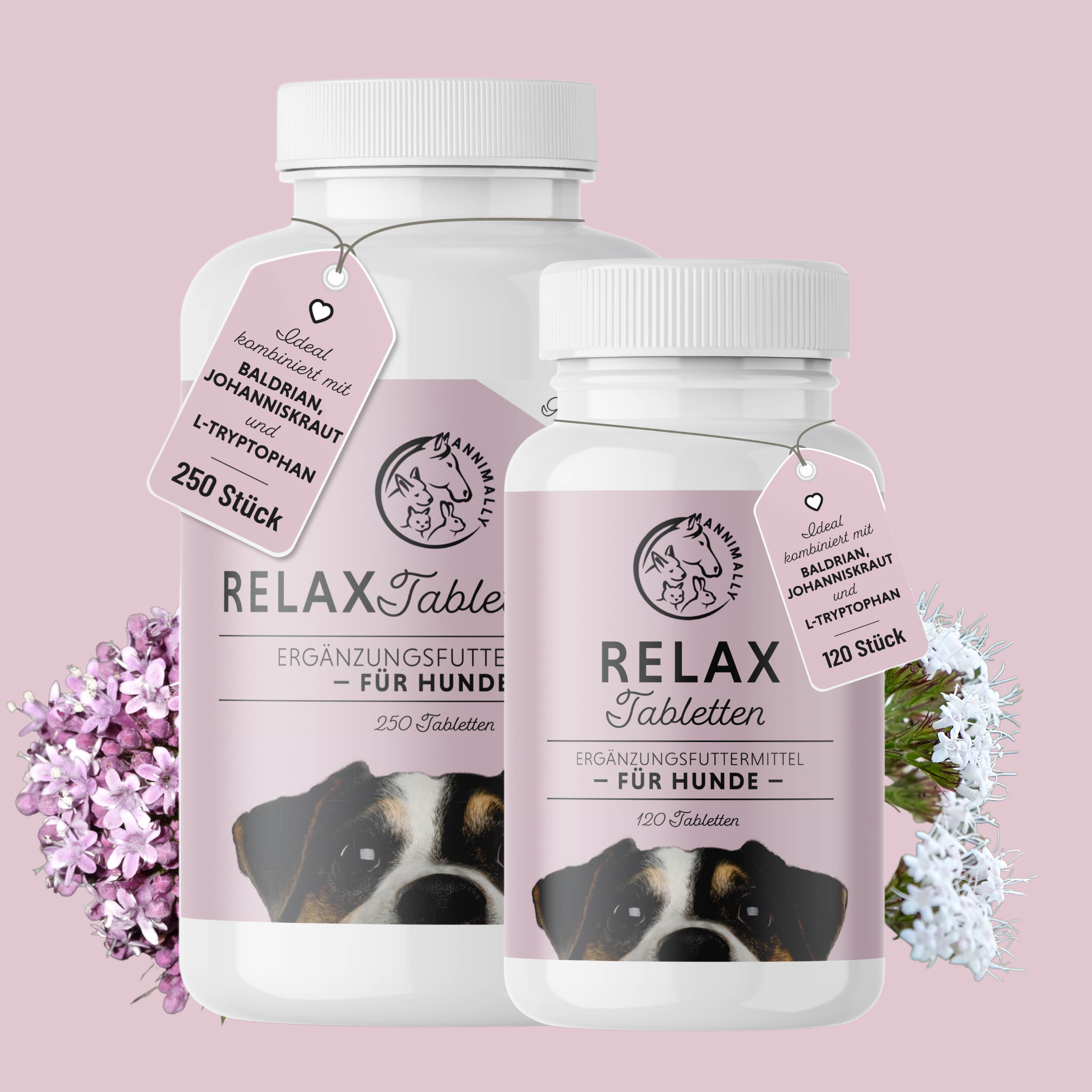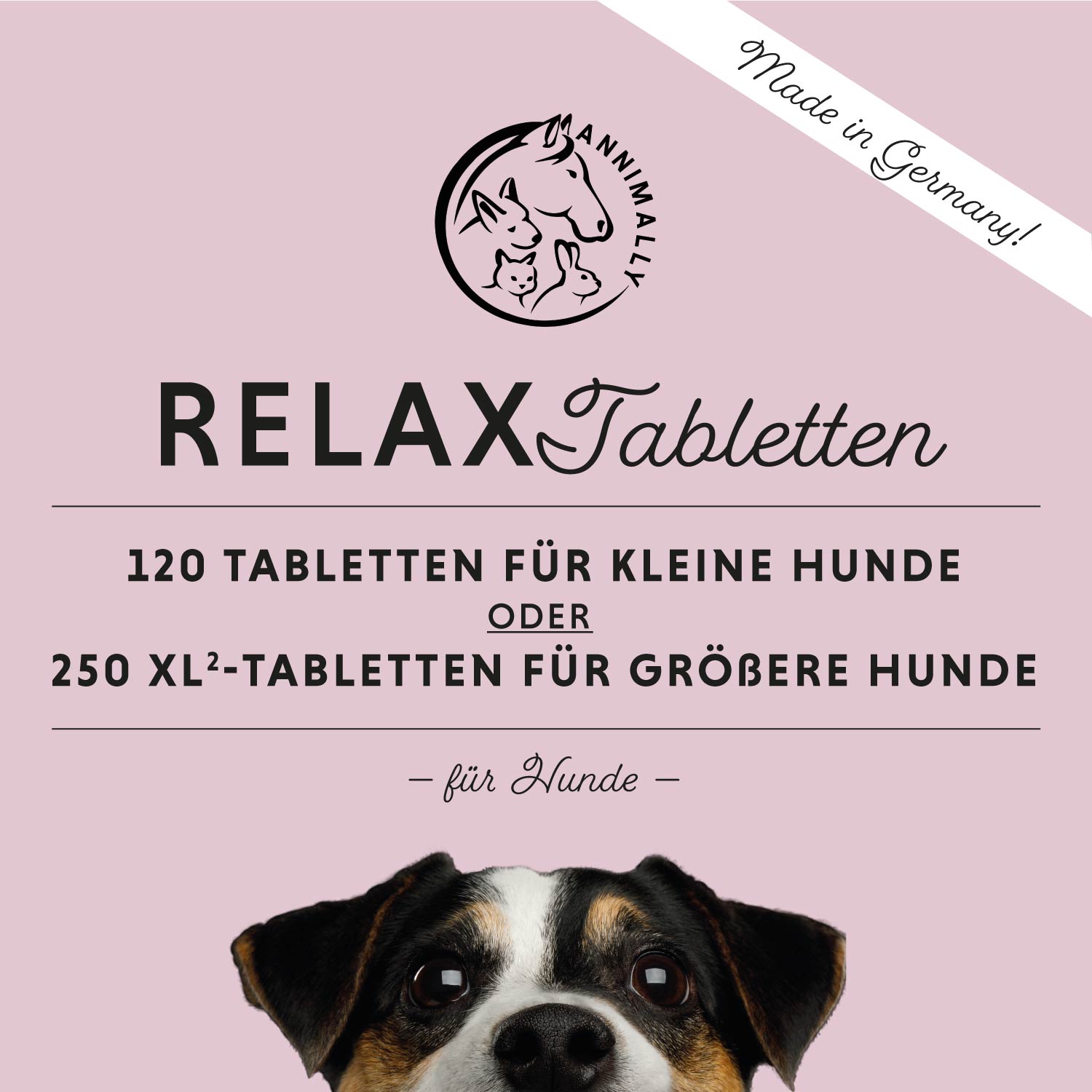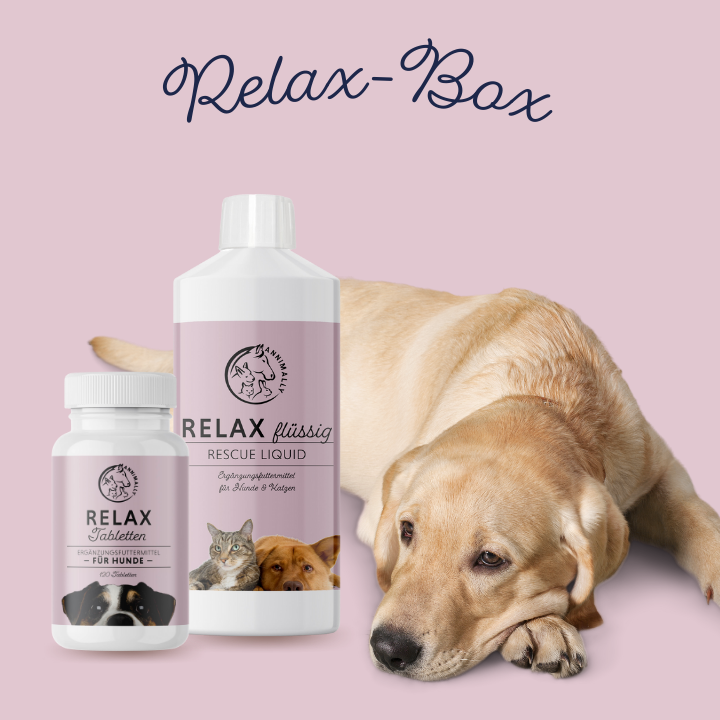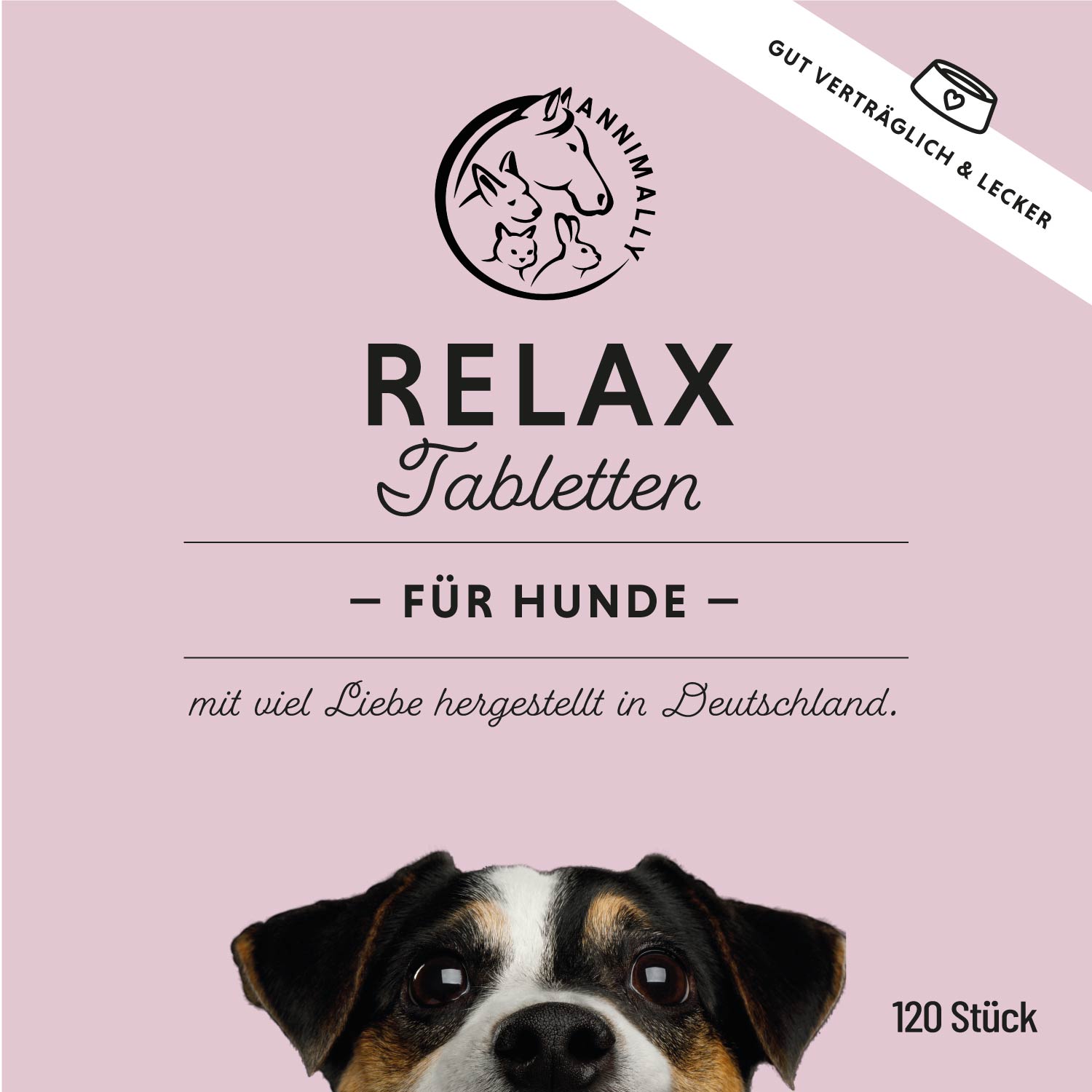Vitamin B12 for dogs: Why it's so important and how to recognize a deficiency
Vitamin B12, also called cobalamin, is an essential nutrient that is vital for many vital processes in your dog's body.
It belongs to the B vitamin group and plays a key role in blood formation, energy metabolism, nerve function, and cell division. A vitamin B12 deficiency can cause serious health problems, so it's important to ensure an adequate supply.
In this article, you will learn how to optimally supply your dog with vitamin B12, which dosage is appropriate, and when supplementation is necessary.
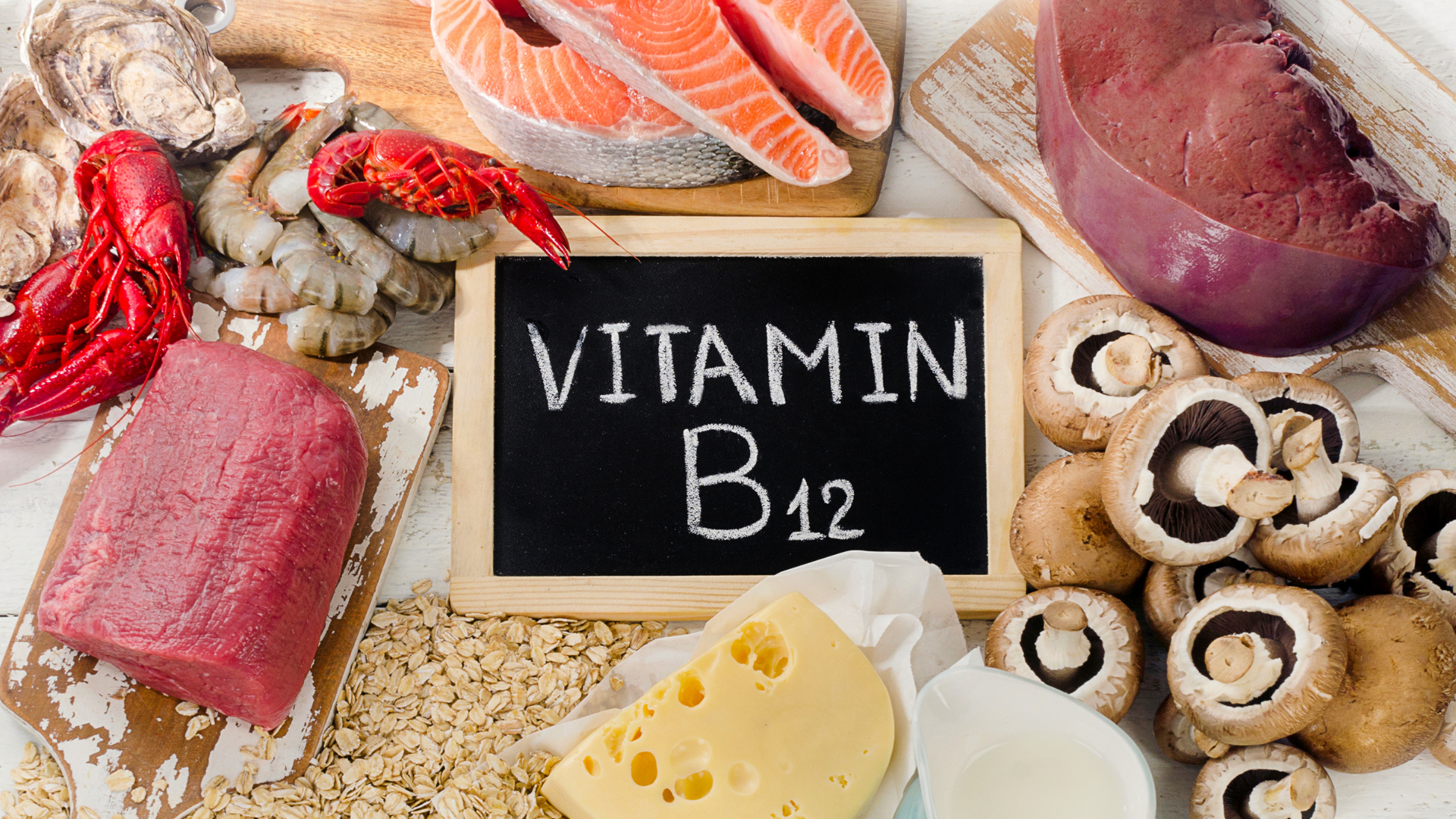
What is vitamin B12 and why is it so important for dogs?
Vitamin B12 is a water-soluble vitamin belonging to the B vitamin group. Unlike other B vitamins, it is absorbed almost exclusively through animal foods, particularly meat, fish, and liver.
Your dog needs vitamin B12 to maintain important bodily functions, including:
-
Support of the immune system : A sufficient supply of vitamin B12 helps the immune system to fight off pathogens efficiently.
-
Function of the nervous system : It plays a crucial role in healthy nerves and protects the intestinal mucosa.
-
Energy metabolism : Vitamin B12 is involved in the conversion of fat, proteins and carbohydrates into energy.
-
Skin and coat : A deficiency can lead to skin problems and a dull, brittle coat.
-
Blood formation : Vitamin B12 supports the formation of red blood cells and contributes to an optimal oxygen supply.
-
intestinal mucosa and digestion: It helps maintain a healthy intestinal mucosa, which is essential for nutrient absorption.
Vitamin B12 deficiency in dogs: causes and symptoms
A vitamin B12 deficiency can be triggered by various factors. Since vitamin B12 plays a crucial role in energy metabolism, nerve function, and blood formation, a deficiency can have serious consequences for your dog's health. The most common causes of a deficiency are:
Insufficient intake through food
The most important source of vitamin B12 for dogs is animal food, especially meat, fish, and liver. However, if the food is of poor quality or contains few animal ingredients, vitamin B12 intake may be insufficient. Dogs fed an unbalanced or unbalanced diet are particularly affected.
Malabsorption in the gastrointestinal tract
Even if a dog consumes sufficient vitamin B12 through its food, the body may not be able to utilize the vitamin properly. This is often the case with diseases of the gastrointestinal tract, which reduce the bioavailability of vitamin B12. Chronic intestinal diseases, impaired intestinal mucosa, or pancreatic diseases such as exocrine pancreatic insufficiency are particularly problematic. In these diseases, the intestine's ability to absorb nutrients is severely limited, so that a deficiency can develop despite adequate intake.
Increased need for vitamin B12
During certain life stages or health conditions, your dog's vitamin B12 needs may increase. Puppies and young dogs that are still growing often require larger amounts to optimally support cell division and energy metabolism. Pregnant and lactating bitches also have increased nutrient requirements to ensure adequate nutrition for both themselves and their puppies.
In addition, sick or weakened dogs may also have a higher need for vitamin B12, especially if they suffer from chronic diseases, intestinal mucosal problems or a weakened immune system.
If you suspect your dog is suffering from a vitamin B12 deficiency, don't hesitate to consult a veterinarian. An early blood test can help prevent serious problems and ensure appropriate care.
Symptoms of a vitamin B12 deficiency
A vitamin B12 deficiency can manifest itself through various symptoms.
Your dog may suffer from a loss of appetite and lose weight despite regular feeding. Affected dogs often exhibit general weakness and listlessness, making them less active than usual.

Additionally, gastrointestinal problems such as diarrhea or vomiting can occur, which may indicate a disorder of the intestinal mucosa. In some cases, a deficiency also manifests itself in neurological abnormalities, such as tremors or coordination problems, which indicate a nervous system impairment.
Another common sign is coat problems: The coat may appear dull, dry, or shaggy, while the skin may become more sensitive. Furthermore, a severe vitamin B12 deficiency can lead to pale mucous membranes, as the immune system and blood formation are impaired.
If your dog shows one or more of these symptoms, you should definitely consult a veterinarian to have their vitamin B12 levels checked and consider appropriate supplementation.
How can you ensure your dog's vitamin B12 supply?
Vitamin B12 supply can be optimized in various ways:
1. High-quality food with vitamin B12
A good dog food should contain sufficient vitamin B12. Particularly high-quality foods contain:
-
Meat (especially liver) as the main ingredient
-
Fish as a natural source of vitamin B12
-
Additional B vitamins (e.g. vitamin B1, vitamin B2, vitamin B6 and biotin)
Check the ingredients of the food to make sure your dog is getting enough vitamin B12.
2. Supplement with vitamin B12 tablets or powder
If your dog isn't getting enough vitamin B12 from their food or has health problems, supplementing with vitamin B12 tablets or powder may be beneficial. These products are available in various forms:
-
Tablets or capsules : Easy to dose and often available in combination with other B vitamins.
-
Powder to mix into food : Especially useful for dogs who don't like tablets.
-
Injections : In cases of severe deficiencies, direct administration by the veterinarian may be necessary.
Our Relax Liquid was specially developed to naturally provide your dog with essential nutrients, including B vitamins and vitamin B12. The liquid form ensures high bioavailability and easy feeding.
3. Fresh foods as a source of vitamin B12
If you feed your dog fresh ingredients, you can improve his vitamin B12 supply with the following foods:
-
Liver (beef, chicken or lamb)
-
Fish such as salmon or mackerel
-
Eggs (in moderation)
-
High-quality meat from Germany with proven quality
What role do other B vitamins play?
In addition to vitamin B12, other B vitamins are also important for dogs:
-
Vitamin B1 (Thiamine) : Supports the nervous system and carbohydrate metabolism.
-
Vitamin B2 (riboflavin) : Promotes energy production and metabolism.
-
Vitamin B6 (pyridoxine) : Essential for protein metabolism and nerves.
-
Biotin : Important for healthy skin and a shiny coat.
-
Folic acid : Supports cell formation and has a positive effect on blood formation.
A vitamin B complex can help cover the entire B vitamin group and ensure optimal supply.
Conclusion: Vitamin B12 is essential for your dog’s health
This vitamin is a vital nutrient that supports many processes in your dog's body—from nerve function to blood formation to energy metabolism. A deficiency can cause serious problems, which is why regular monitoring of their supply is important.
Make sure your dog is fed high-quality food, supplement with vitamin B12 tablets or powder if necessary, and consult a veterinarian if your dog shows symptoms of a vitamin B12 deficiency.
With the right composition of his food, you can ensure that your dog is optimally cared for and leads a healthy, active life.

